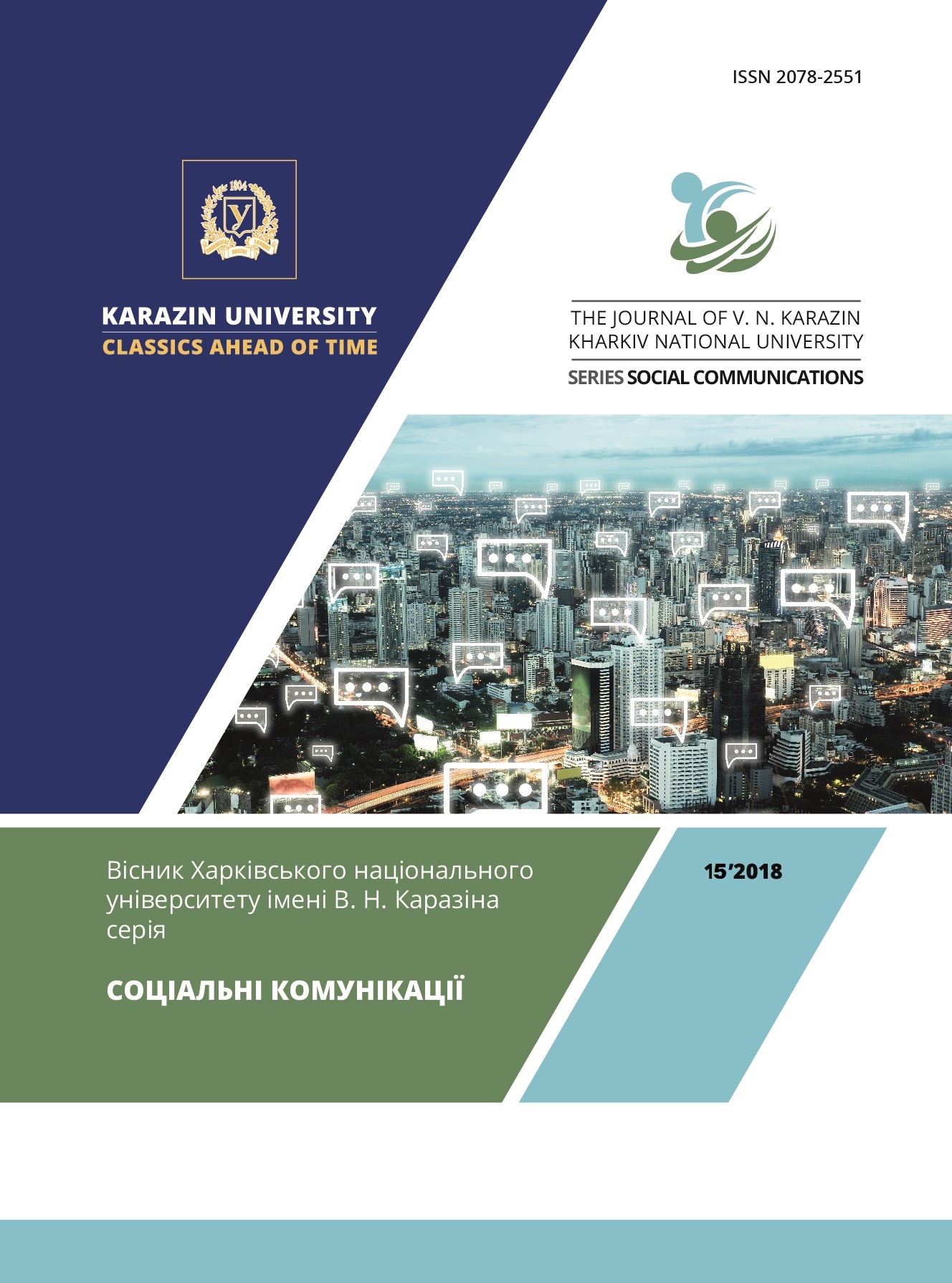Media culture and media education in the field of applied social and communication technologies
Abstract
The purpose of the article is the search for the points of intersection of the principles of efficiency and correctness in applied socio-communicative technologies (ASCT) – as such, which often contradict each other, but leave space for compromise and balance (in aspects of media culture and media education). ASCT is an insufficiently taken into account factor of socialization and transformation of public consciousness (in positive and negative directions). These are an advertisement as a mirror of the day with its everyday life, stereotypes and trends; and image of media persons as imitated examples of success; and PR-communication as a version of social interaction; and media wars, for the present integrated into Ukrainian everyday life, crossing all ethical boundaries, etc.
ASCT is a field concerning which one’s own empirical experience serves as the optimal way to objectify ideas: in the perception of the phenomena and texts produced within the ASCT, one goes through the path «interest – trust – disappointment – prejudice – selective interest – critical perception». Fundamentally critical and prejudiced perception is conceptual in ASCT reception. Today it’s almost not emphasized that operating with true facts within ASCT is possible; advertising professional can accentuate true benefits of the product and cause long-termed preference not one-time purchase; PR-specialist can be the first to go public about enterprise problems giving them true but decent interpretation; image-maker can find features of image carrier which are truly attractive for audience, not giving him uncomfortable mask; even person professionally involved in media wars can appeal to real facts carefully chosen from mass media field without inventing fakes, which might be exposed and ruin reputation of the «author» and the idea he supports. At the same time recipient is a priori ready for mythological nature of ASCT and created and broadcasted with their help information, as well as for produced objects. In this perspective media culture aspect within the limits of ASCT functioning is extremely relevant and linked to the formation of critical attitude among recipients and the development of mechanisms to filter the information provided, which can optimize social interaction in terms of efficiency and correctness.




